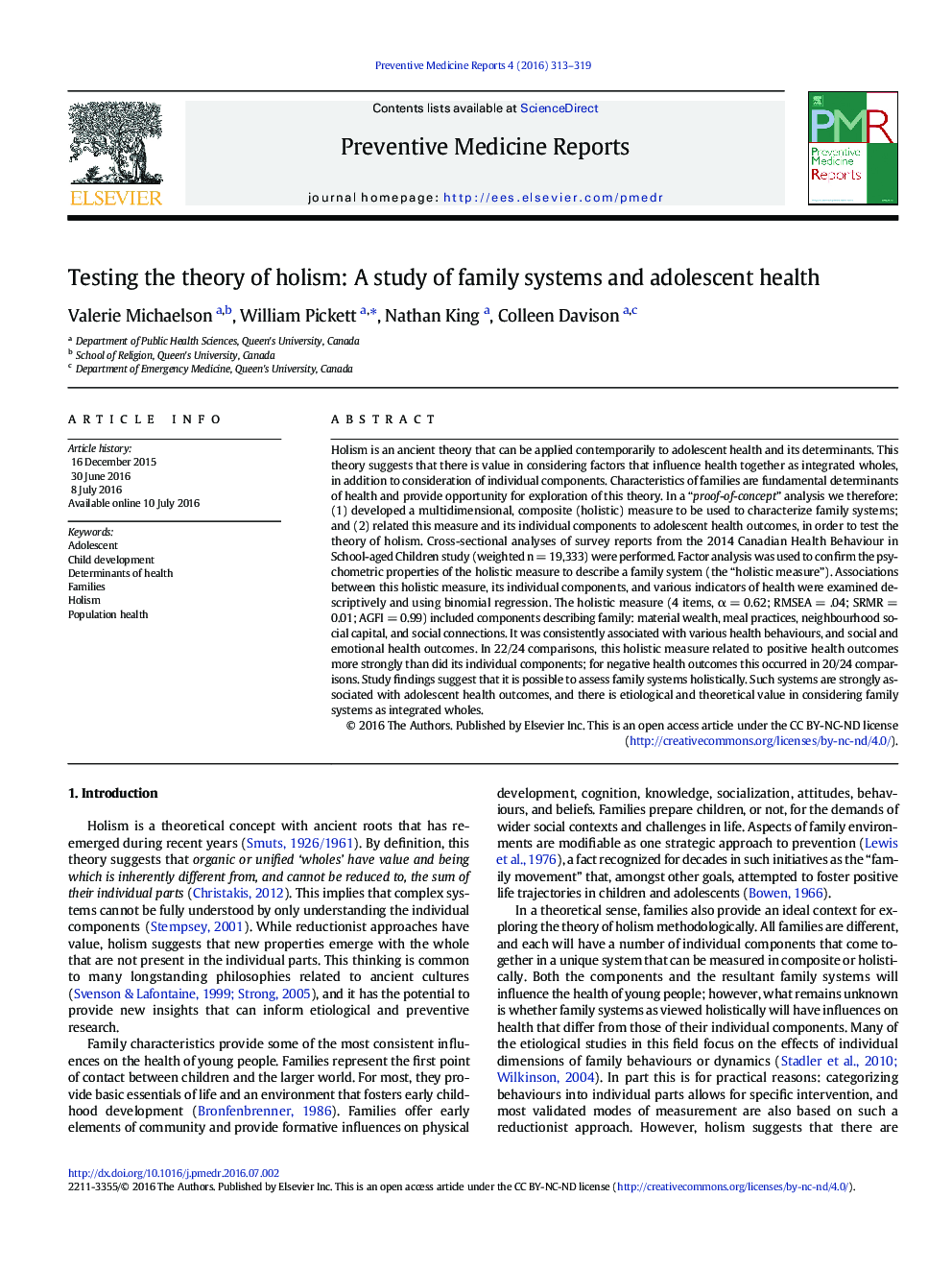| کد مقاله | کد نشریه | سال انتشار | مقاله انگلیسی | نسخه تمام متن |
|---|---|---|---|---|
| 4202277 | 1609088 | 2016 | 7 صفحه PDF | دانلود رایگان |
• The theory of holism suggests there is value in considering factors as integrated wholes
• Characteristics of families provide an ideal opportunity to test this theory
• We created a holistic measure to describe family systems empirically
• The measure related to adolescent health outcomes more strongly than its individual components
• There is etiological value in considering family systems as integrated wholes
Holism is an ancient theory that can be applied contemporarily to adolescent health and its determinants. This theory suggests that there is value in considering factors that influence health together as integrated wholes, in addition to consideration of individual components. Characteristics of families are fundamental determinants of health and provide opportunity for exploration of this theory. In a “proof-of-concept” analysis we therefore: (1) developed a multidimensional, composite (holistic) measure to be used to characterize family systems; and (2) related this measure and its individual components to adolescent health outcomes, in order to test the theory of holism. Cross-sectional analyses of survey reports from the 2014 Canadian Health Behaviour in School-aged Children study (weighted n = 19,333) were performed. Factor analysis was used to confirm the psychometric properties of the holistic measure to describe a family system (the “holistic measure”). Associations between this holistic measure, its individual components, and various indicators of health were examined descriptively and using binomial regression. The holistic measure (4 items, α = 0.62; RMSEA = .04; SRMR = 0.01; AGFI = 0.99) included components describing family: material wealth, meal practices, neighbourhood social capital, and social connections. It was consistently associated with various health behaviours, and social and emotional health outcomes. In 22/24 comparisons, this holistic measure related to positive health outcomes more strongly than did its individual components; for negative health outcomes this occurred in 20/24 comparisons. Study findings suggest that it is possible to assess family systems holistically. Such systems are strongly associated with adolescent health outcomes, and there is etiological and theoretical value in considering family systems as integrated wholes.
Journal: Preventive Medicine Reports - Volume 4, December 2016, Pages 313–319
